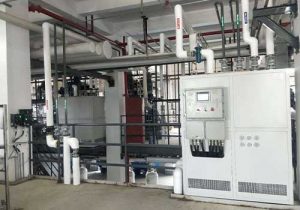chiller supply
Understanding Chiller Supply
Chiller supply encompasses the systems and processes involved in delivering cooling solutions to industrial and commercial facilities. Chillers are essential for maintaining optimal temperatures in various applications, including manufacturing processes, data centers, and building HVAC systems.

Types of Chillers
Air-Cooled Chillers: These chillers use fans to dissipate heat directly into the atmosphere. They are simpler to install as they do not require water sources or cooling towers. Air-cooled chillers are suitable for areas with limited water availability or where the installation of water infrastructure is not feasible.
Water-Cooled Chillers: These chillers use water from a cooling tower or other water sources to absorb and dissipate heat. They are more efficient in warmer climates and can provide larger cooling capacities. However, they require regular maintenance, such as water treatment and cooling tower cleaning.
Components of Chiller Systems
Chiller systems consist of several key components:

Compressor: The heart of the chiller, responsible for compressing the refrigerant.
Condenser: Where the refrigerant releases heat to the cooling medium (air or water).
Evaporator: Absorbs heat from the fluid that needs to be cooled.
Expansion Valve: Regulates the flow of refrigerant between the condenser and evaporator.
Efficiency and Chiller Supply
The efficiency of a chiller is crucial for reducing energy consumption and operational costs. Chiller efficiency can be measured using various metrics, such as Coefficient of Performance (COP) or EER (Energy Efficiency Ratio). Regular maintenance and proper sizing of the chiller according to the application’s cooling demand contribute to optimal efficiency.
Maintenance of Chiller Systems
Proper maintenance is essential for the reliable operation of chiller systems. Maintenance activities include:

Cleaning: Regular cleaning of condenser coils and evaporator tubes to ensure efficient heat transfer.
Inspection: Periodic inspection of the compressor, pumps, and other moving parts for wear and tear.
Fluid Management: Monitoring and managing the refrigerant and coolant levels and quality.
Applications of Chiller Systems
Chiller systems are used in a wide range of applications, including:
Industrial Processes: For processes that require precise temperature control, such as chemical reactions or material fabrication.
Commercial Buildings: To provide cooling for HVAC systems in offices, malls, and hotels.
Data Centers: To maintain the temperature of servers and IT equipment.
Conclusion
Chiller supply is a critical aspect of modern industrial and commercial operations. Understanding the different types of chillers, their components, and the importance of maintenance is essential for ensuring efficient and reliable cooling. Whether choosing an air-cooled or water-cooled chiller, the selection should be based on the specific requirements of the application, including factors such as available space, climate conditions, and water resources. Regular maintenance and monitoring of chiller systems are key to optimizing their performance and lifespan.
Related recommendations
water cooling system for industry
531Water Cooling Systems for Industry: A Comprehensive Overview In industrial applications, managing heat is essential for maintaining the efficiency and longevity of machinery and processes. Wate...
View detailsoperation of chiller
745The Operation of Chiller Equipment Chiller equipment is an essential component in many industrial and commercial processes where temperature control is critical. These systems operate on well-e...
View detailsBattery Pack Test Water-Cooled Chiller System
1393Battery Pack Test Water-Cooled Chiller System The battery pack test water-cooled chiller system can realize the digitization of key experimental parameters in the entire reaction process and ...
View detailswater cooled chiller system
433Water Cooled Chiller System: A Comprehensive ExplorationWater cooled chiller systems are integral to many industrial and commercial settings, playing a vital role in maintaining optimal temperatu...
View details
 LNEYA Chiller
LNEYA Chiller






HelloPlease log in